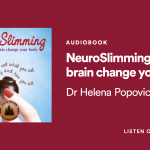Consuming alcohol on an aircraft is an underestimated health risk, especially on long haul flights.
The higher a plane flies, the lower the atmospheric pressure inside the aircraft. To counteract this, the cabin pressure on commercial flights is adjusted to ensure passenger safety but it is still less than the pressure on the ground. Lower atmospheric pressures lead to reduced oxygen in our arteries (known as hypobaric hypoxia) and a compensatory increase in our pulse rate. This increases strain on our heart. People living at high altitudes acclimatise to low atmospheric pressures and do not suffer negative health effects. However, there isn’t enough time to acclimatise on a long haul flight.
Now let’s add alcohol to the picture. Alcohol dilates (widens) our blood vessels and increases our heart rate, especially during sleep. This exacerbates the burden on our heart caused by the lower atmospheric pressure. Alcohol + flying + falling asleep = increased risk of heart attack and worsening of heart and lung problems. Alcohol + flying even taxes the heart of healthy young people.
To investigate the extent to which this occurs, 48 healthy volunteers aged 18-40 years spent two nights in an altitude chamber that mimicked the pressure in an aircraft. Before one of the nights, they consumed alcohol (the equivalent of 175mL of wine or 2 cans of beer), and on both nights, their blood oxygen saturation (SpO2), heart rate and sleep patterns (polysomnography) were monitored.
When sleeping at ground level without alcohol, their SpO2 was 96%, and heart rate was 64 beats per minute (BPM). When they slept in a low atmospheric pressure environment after consuming alcohol, their SpO2 dropped to 85% (11% less than normal) and heart rate increased to 88 BMP (24 BPM higher than normal). These are large and significant differences, and they occurred in healthy young people who are likely to withstand the changes better than older people —especially those with pre-existing cardiac or respiratory diseases. Consuming alcohol also disrupted the participants’ normal sleep patterns (most notably, they spent less time in REM/dream sleep) despite falling asleep more quickly.
Given that 58% of aircraft diversions are due to cardiac arrest, the research implies that these incidents could be substantially reduced if passengers did not consume alcohol while flying.
It is unlikely that airlines will stop serving alcohol any time soon. Many passengers say it helps them relax and reduces the anxiety of flying. However, alcohol also worsens jet lag due to sleep pattern disruption and dehydration.
So all I can say is: flyer beware!
For those who would like to read the entire paper, you can visit the journal Thorax. The title of the study is: ‘Effects of moderate alcohol consumption and hypobaric hypoxia: implications for passengers’ sleep, oxygen saturation and heart rate on long-haul flights’. The authors are Rabea Antonia Trammer, Daniel Rooney, Sibylle Benderoth, Martin Wittkowski, et al.
Please share this Health-e-Byte with anyone who is a frequent flyer.
Photo credit: I took this photo during an evening stroll around Times Square, New York.


